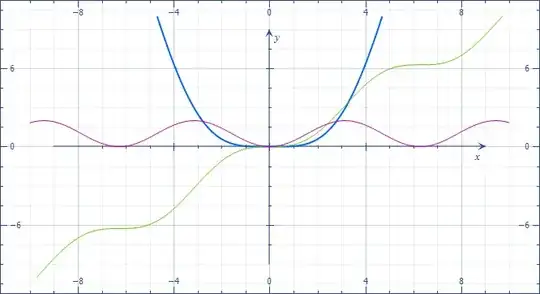I am having a problem in showing that $\cos x -1+\dfrac{x^2}{2!} \geq 0$ for every $x\in \mathbb{R}$.
I have tried the following:
I understand that $\dfrac{x^2}{2!}$ is always non negative. But $\cos x-1$ can be negative. So I can't conclude anything about their sum.
I know that $\cos x=1-\dfrac{x^2}{2!}+\dfrac{x^4}{4!}-\ldots$ so that $\cos x-1+\dfrac{x^2}{2!}=\dfrac{x^4}{4!}-\dfrac{x^6}{6!}+\ldots$ but how do I show that the series in RHS is non-negative? I need some help.
